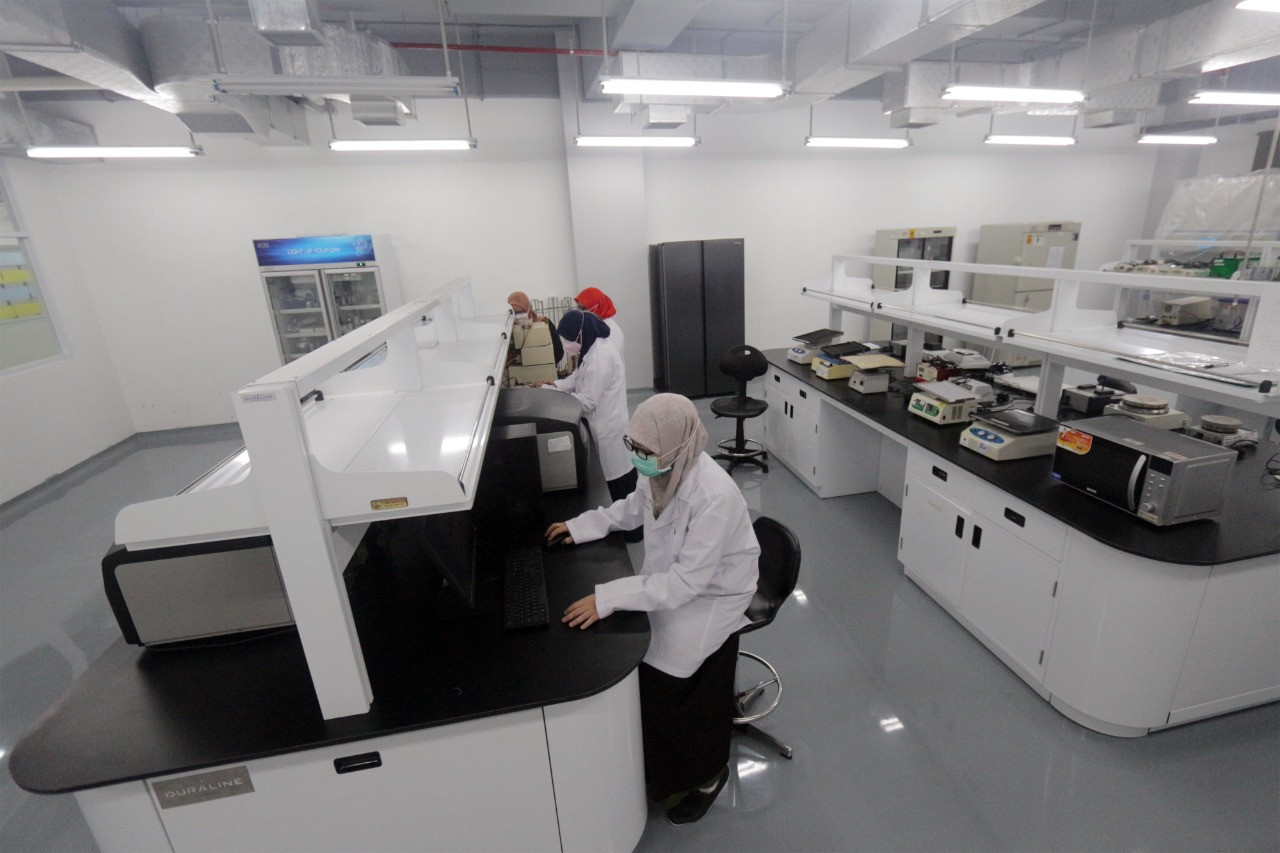Popular Reads
Top Results
Can't find what you're looking for?
View all search resultsPopular Reads
Top Results
Can't find what you're looking for?
View all search resultsBRIN marks second anniversary, aims to improve country’s research ecosystem
Two years since it became a "research superbody" tasked with consolidating all state-sanctioned research and innovation efforts, the National Research and Innovation Agency (BRIN) is now looking to put its challenging transition period behind and make up for lost time in developing Indonesia’s research ecosystem.
Change text size
Gift Premium Articles
to Anyone
T
wo years since it became a "research superbody" tasked with consolidating all state-sanctioned research and innovation efforts, the National Research and Innovation Agency (BRIN) is now looking to put its “challenging” transition period behind and make up for lost time in developing Indonesia’s research ecosystem.
“If we want to take a look at what has changed [in the past two years], we have to take a look at what the problems were,” BRIN head Laksana Tri Handoko said on Sunday during an event to commemorate the agency’s second anniversary.” Back then, everything was lacking, be that funding or equipment, across all research units [throughout the country].”
Initially founded in 2019 as part of President Joko "Jokowi" Widodo’s newfound focus on research and innovation, the BRIN was previously set up to coordinate research programs and policies among the country’s different research institutions.
The BRIN underwent a major change in April 2021 that had led the agency to become what observers called a “research superbody,” as it was tasked with usurping existing state-sanctioned research institutions, including those operating under the auspices of various ministries.
“After we integrated a total of 74 research units [into the BRIN], we now have the critical mass necessary [to improve the state of Indonesian research],” Laksana said.
To this end, Laksana said this would be the first year that researchers were expected to fulfill their actual performance targets, as opposed to being given the leeways afforded to them over the past two years due to the BRIN’s transition period.
Read also: Reshuffle marks new era of research, innovation
While researchers are expected to fully commit to their work, Laksana said his focus this year would be on equipping research facilities with state-of-the-art equipment that would not only be used by the BRIN’s own researchers but also those from universities throughout the country.
“Going forward, not only BRIN researchers, but all Indonesian researchers will no longer have excuses or things to complain about [regarding research infrastructure and ecosystem in the country]. That [improving infrastructure and ecosystem] will be my primary focus,” Laksana added.
Award-winning researchers
As part of the BRIN’s anniversary, the agency held a festive celebration at its headquarters in Central Jakarta on Sunday, laced with musical performances and food stalls. Sunday’s event also saw just over a dozen researchers being given awards for their work.
One such researcher is Basril Abbas, formerly of the National Nuclear Energy Agency (BATAN), who received the 2023 Intellectual Property Award for having achieved the highest accumulative royalties in a year.
Rights to Basril’s work in developing locally produced bone grafts and pericardium membranes, products used during tooth extraction, was bought for mass production by a chemical company in a deal worth Rp 500 million (US$34,000).
Speaking to The Jakarta Post following Sunday’s award ceremony, Basril said he completed his research in 2018, but a lack of interest from chemical manufacturers in the years following meant that his research was only picked up last year.
“Currently, products [that fulfill a similar purpose] are still imported. Now, with the results of my research already in production, I hope that it can be a cheaper alternative for the public, without reducing the quality,” he said.
Despite their research and innovation, the BRIN had also in recent months made headlines for all the wrong reasons.
Read also: Science, innovation at stake under BRIN management
The latest was last week, when police named BRIN researcher Andi Pangerang Hasanuddin as a suspect for allegedly spreading online hate against Muhammadiyah, the country’s second largest Muslim organization that celebrated Idul Fitri a day before the official date of April 22.
A few months prior, in February, Laksana, in his capacity as BRIN head, was in the spotlight for alleged reckless spending policies, one of which was reportedly paying lawmakers for simply attending online training workshops.
Late last year, the BRIN was also subject of online criticism after one of its climatologists had given differing weather warnings compared with those issued by the Meteorological, Climatological and Geophysical Agency (BMKG), forcing the President to step-in and back the BMKG as the state’s official weather warning channel.










